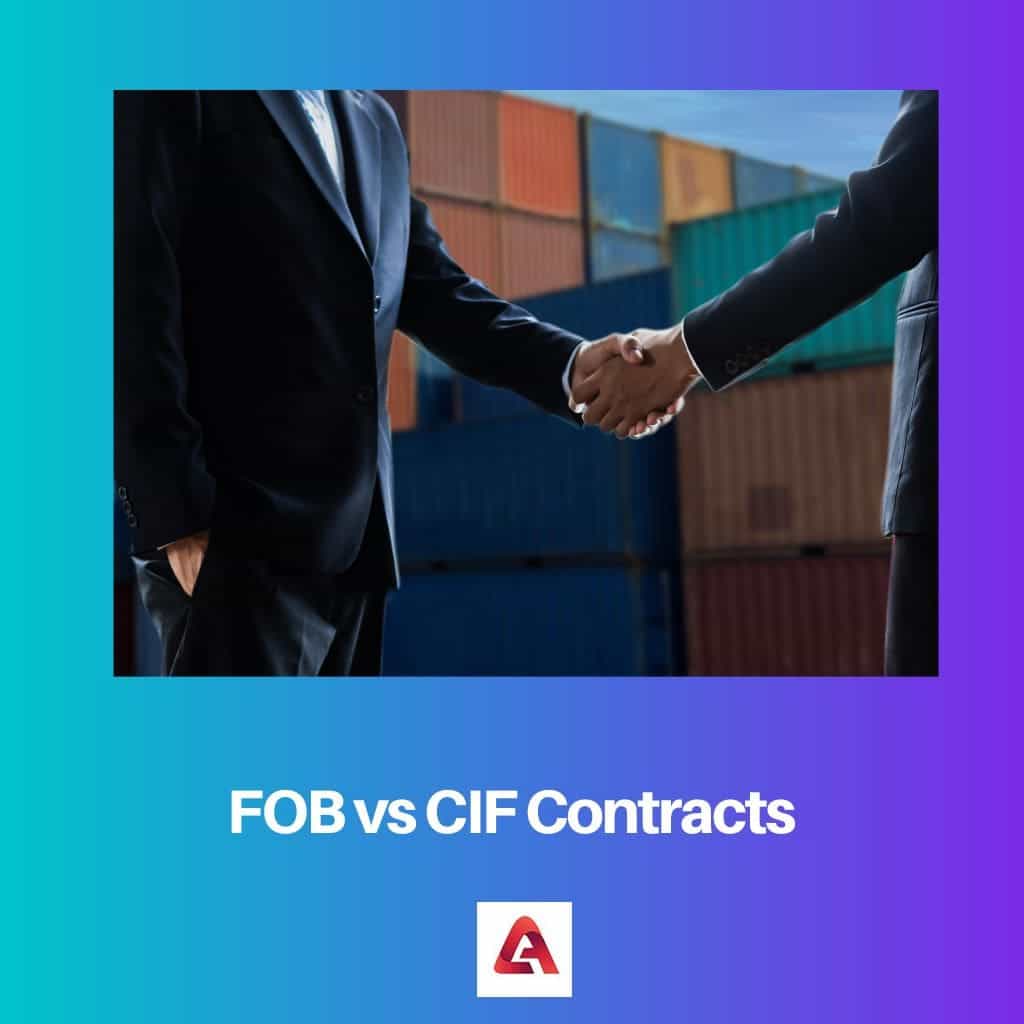Key Takeaways
- FOB (Free on Board) and CIF (Cost, Insurance, and Freight) are international trade contracts that determine the responsibility for shipping, insurance, and other related costs.
- In a FOB contract, the buyer is responsible for all costs and risks associated with the shipment of the goods once they are loaded onto the ship.
- In a CIF contract, the seller is responsible for all costs and risks associated with the shipment of the goods until they reach the destination port.

What are FOB Contracts?
FOB Contract is the abbreviation for the “Free on Board” term. The contracts hold two parties: one buyer and the seller, where the seller bears the responsibility for the goods or products until they are boarded on the ship. Later, they are entirely the responsibility of the buyer.
The expenses for loading the goods are the seller’s concern, and the risks pass on to the other party when they are done. They have the authority to find the ship required for the transportation of goods.
After all this, the seller’s duties end, and the buyer is liable to pay the amount of the goods or products to the seller even if the shipment is lost.
What are CIF Contracts?
CIF Contract is the “Cost, Insurance, and Freight” term abbreviation. The contract holds two parties: one buyer and the seller. Unlike the FOB Contract, the seller has to bear all the expenses and responsibilities, from loading the shipment to delivering the goods or products at the destination port.
That is why the seller makes specific insurance for the goods or products to be exported. The entire risk of the shipment is on the seller itself. The buyer bears the cost of other expenses after delivery.
Also, the seller has the right to a lien on goods if there’s any breach of contract with the other party in the middle of the shipment. The buyer can stop the transit of the cargo.
Difference Between FOB Contracts and CIF Contracts
- The term FOB Contract is the abbreviation used for the term ‘Free on Board Contract’ while comparatively, on the other hand, the term CIF Contract is the abbreviation used for ‘Cost, Insurance, and Freight Contracts.’
- In the FOB Contract, the seller bears the responsibility till the goods are loaded on the ship; later, the responsibility is passed on to the buyer. Whereas comparatively, on the other hand, in the CIF Contract, the seller bears all the responsibility for the loading, insurance, and freight till it reaches the destination.
- In the FOB Contracts, the seller doesn’t require any insurance for its goods or products. On the other hand, in the CIF Contracts, the seller needs to buy insurance for the goods or products exported.
- Under the FOB Contracts, the buyer has the responsibility or is in charge of finding the ship for transporting the goods or products. Whereas comparatively, on the other hand, under the CIF Contracts, the seller is in charge of arranging the ship for transporting the goods.
- Under FOB Contracts, the risk is bear entirely by the buyer, whereas comparatively, on the other hand, under CIF Contracts, the risk is ultimately bear by the seller itself.
- The cost for FOB Contracts is cheap, whereas comparatively, on the other hand, the price for CIF Contracts is much higher.
- Under the FOB Contracts, the seller cannot claim any lien on goods or products, whereas comparatively, on the other hand, under the CIF Contracts, the seller can claim the right to a lien on goods.
Comparison Between FOB Contracts and CIF Contracts
| Parameter of Comparison | FOB Contracts | CIF Contracts |
|---|---|---|
| Full Form | Free on Board | Cost, Insurance and Freight |
| Definition | In this contract, the seller bears the responsibility till the goods are loaded on the ship. Later, the responsibility is passed on to the buyer. | In this contract, the seller bears all the responsibility for the loading, insurance, and freight till it reaches the destination. |
| Insurance | The seller takes no insurance for the goods. | Yes, the sellers buy insurance for their goods or products. |
| Shipping | The buyer is solely responsible for finding the ship for the shipment | The seller is solely responsible for finding the ship for the shipment |
| Risk | Bear by buyer | Bear by seller |
| Cost | Cheap | Expensive |
| Right of lien on goods | The seller cannot claim any lien on goods or products | The seller has complete right to a lien on the products or goods |
- https://papers.ssrn.com/sol3/papers.cfm?abstract_id=3278642
- https://heinonline.org/HOL/LandingPage?handle=hein.journals/unmialr23&div=9&id=&page=
